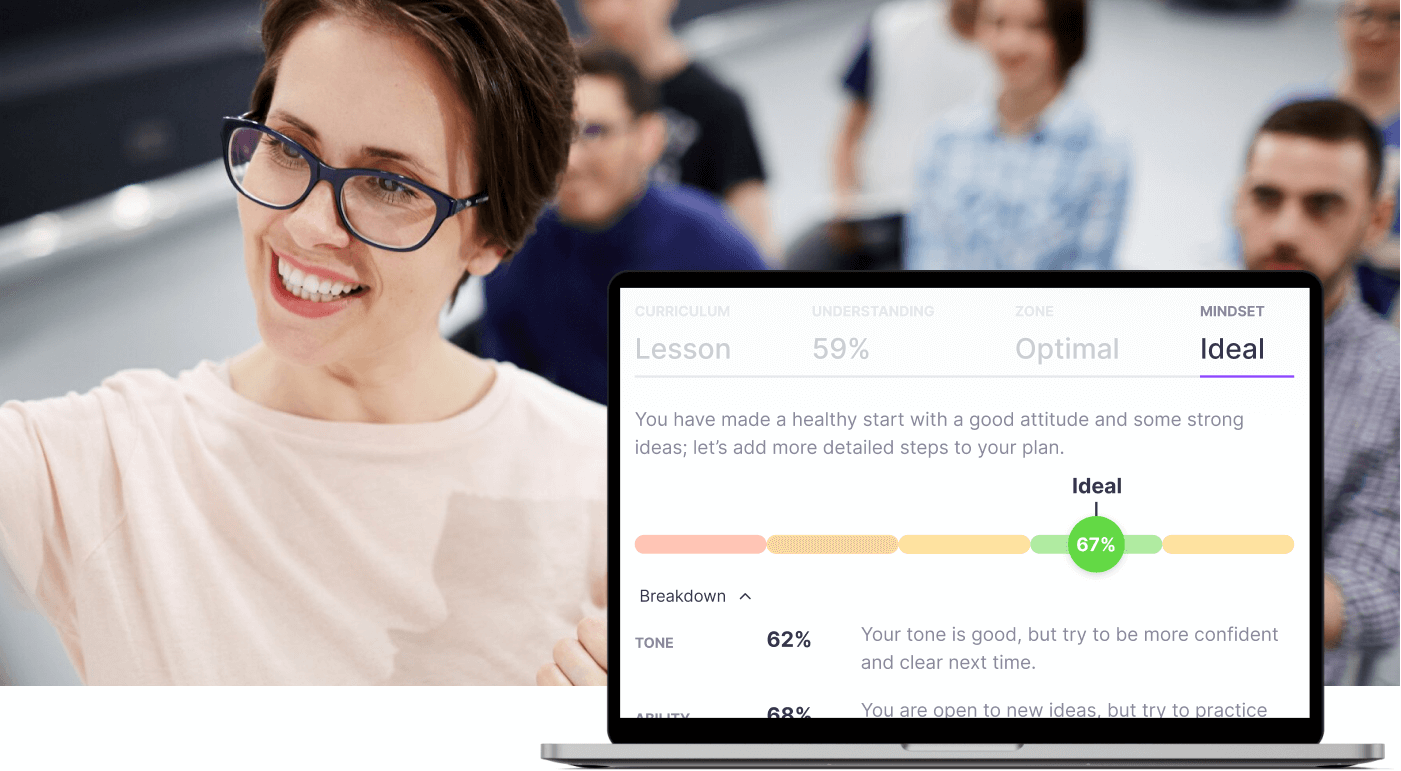
Carol Dweck’s work on Mindset explores the belief systems people have about their abilities, distinguishing between fixed mindset (believing abilities are innate) and growth mindset (believing abilities can be developed).
In reflective practice, adopting a growth mindset is crucial as it encourages educators and their students to view challenges as opportunities for learning and improvement rather than insurmountable obstacles.
When teachers foster a positive mindset, students learn to embrace challenges, persist through difficulties, and view their abilities as expandable, leading to greater academic and personal growth.
There are many traditional approaches teachers take to assess mindset, but these methods are often hindered by lack of time and bandwidth, student willingness to participate authentically, and a teacher’s own bias in assessing fairly.
This is one of the many reasons we have developed MirrorTalk. MirrorTalk assesses a student’s mindset each time they complete a reflection. Teachers can now measure and track all of their students’ mindsets in a few button clicks.
Traditional approaches
Complete all these steps
- Create a custom survey
- Custom rubric to self-evaluate
- Observe students’ reactions to feedback and where they get stuck
- Have students journal their learning experiences
- Have students document their goals, and observe if they make adjustments over time
- Give challenging tasks to students and assess their persistence
- 1:1 conversations
- Peer feedback
- Notice how students talk about their abilities and challenges
Biased
Qualitative
Time-consuming
Difficult to track over time
Subject to student participation
With MirrorTalk
Students complete a reflection in 2 minutes
Unbiased
Qualitative
2 minutes per student
Automatically graphed longitudinally (for each student and the whole class)
More candid and authentic student answers every time
Begin measuring your students’ Mindset with MirrorTalk. Schedule a live demo with the Swivl team to learn more.